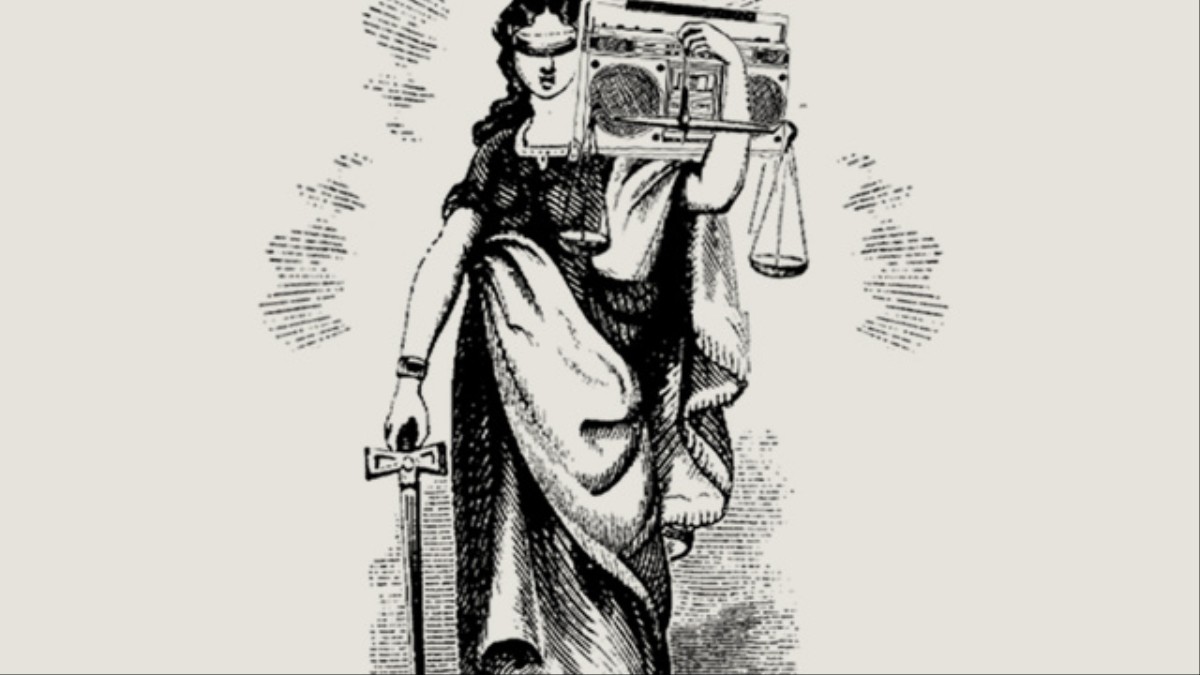
Journalist Sam Levins reports that California could soon limit the admissibility of rap lyric evidence at trial.
Last week, California lawmakers passed new regulations meant to restrict such use of rap lyrics as evidence in criminal court, the first-of-its-kind legislation expected to become law in the US. Experts say that although the impact of the new policy will be narrow, it is a step forward in putting guardrails on a prosecutorial practice that all too often has worked to criminalize the artistic expression of young Black and Latino men.
THE HISTORY BEHIND ADMITTING RAP LYRICS AS EVIDENCE AT TRIAL.
According to the article, more than 500 reported cases of prosecutors using rap music as evidence against defendants. The practice started to surge in the 2000s, when authorities began to rely on social media in cases against amateur rappers.
The lyrics are typically cited to suggest “gang affiliation”, proof of crimes and intent, or demonstrate a rapper’s “violent” character or threats. The strategy was used against famous artists like Snoop Dogg in the 1990s, Drakeo the Ruler in 2018 and Tekashi 6ix9ine in 2019.
Professor Jack Lerner, a University of California, Irvine Law School professor, is an expert on the subject. He says the tactic is used across the nation. Apparently, the American Prosecutors Research Institute released a 2004 manual encouraging the use of lyrics in search warrants and trials.
RAP MUSIC ON TRIAL.
Although there are rare cases where words or music videos may be linked to specific criminal offenses, experts say research shows their use in court has often worked to prejudice jurors against young men of color.
Multiple studies have found that associating defendants with rap music creates a strong negative bias in jurors. People are significantly more likely to perceive lyrics as violent, offensive, dangerous and literal if they are from rap, compared to other genres.
Researchers have also found widespread examples of prosecutors taking lyrics out of context, presenting them in inaccurate and misleading ways, treating fictional lines as facts or confessions and using music to expand charges and secure convictions and lengthy sentences.
“Prosecutors talk to each other and see this is a very effective tactic, and that it’s unlikely to be reversed on appeal. So why wouldn’t you do this if your goal is to lock people up, whether they’re guilty or not?” ~Dr. Erik Nielson, University of Richmond Professor
CALIFORNIA’S PROPOSED LAW BANNING THE ADMISSION OF RAP LYRIC EVIDENCE AT TRIAL.
The new California law places limits on when prosecutors can cite defendants’ “creative expression” in court. It applies to all genres of music, dance, film and other art forms, though the law acknowledges that using rap lyrics in particular creates a substantial risk of prejudice. Reggie Jones-Sawyer is the California state representative behind the bill.
The law requires judges to hold a hearing without the jury present to consider the admissibility of the evidence and whether it would “inject racial bias into the proceedings”.
A pending bill in New York introduced earlier this year would prohibit rap lyrics unless there was “convincing proof that there is a literal, factual nexus between the creative expression and the facts of the case”.
Federal lawmakers have introduced legislation similar to California’s bill, and the Recording Academy and major labels have backed the reforms.
WASHINGTON LAW ON CHARACTER EVIDENCE.
Under Evidence Rule 404, evidence of any other crime, wrong, or act is generally not admissible as character evidence. However, the evidence may be admissible for another purpose, such as proving motive, opportunity, intent, preparation, plan, knowledge, identity, absence of mistake, or lack of accident. Judges typically apply a balancing test to determine whether character evidence is relevant, probative or prejudicial.
My opinion? Let’s hope California’s legislation passes. This is a viable way to stop overzealous prosecutors from using creative expression, which should never be prohibited.
Please contact my office if you, a friend or family member are charged with Harassment or any other crime. Hiring an effective and competent defense attorney is the first and best step toward justice.






